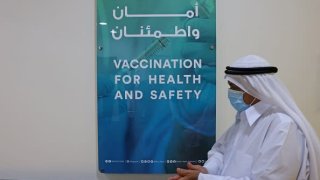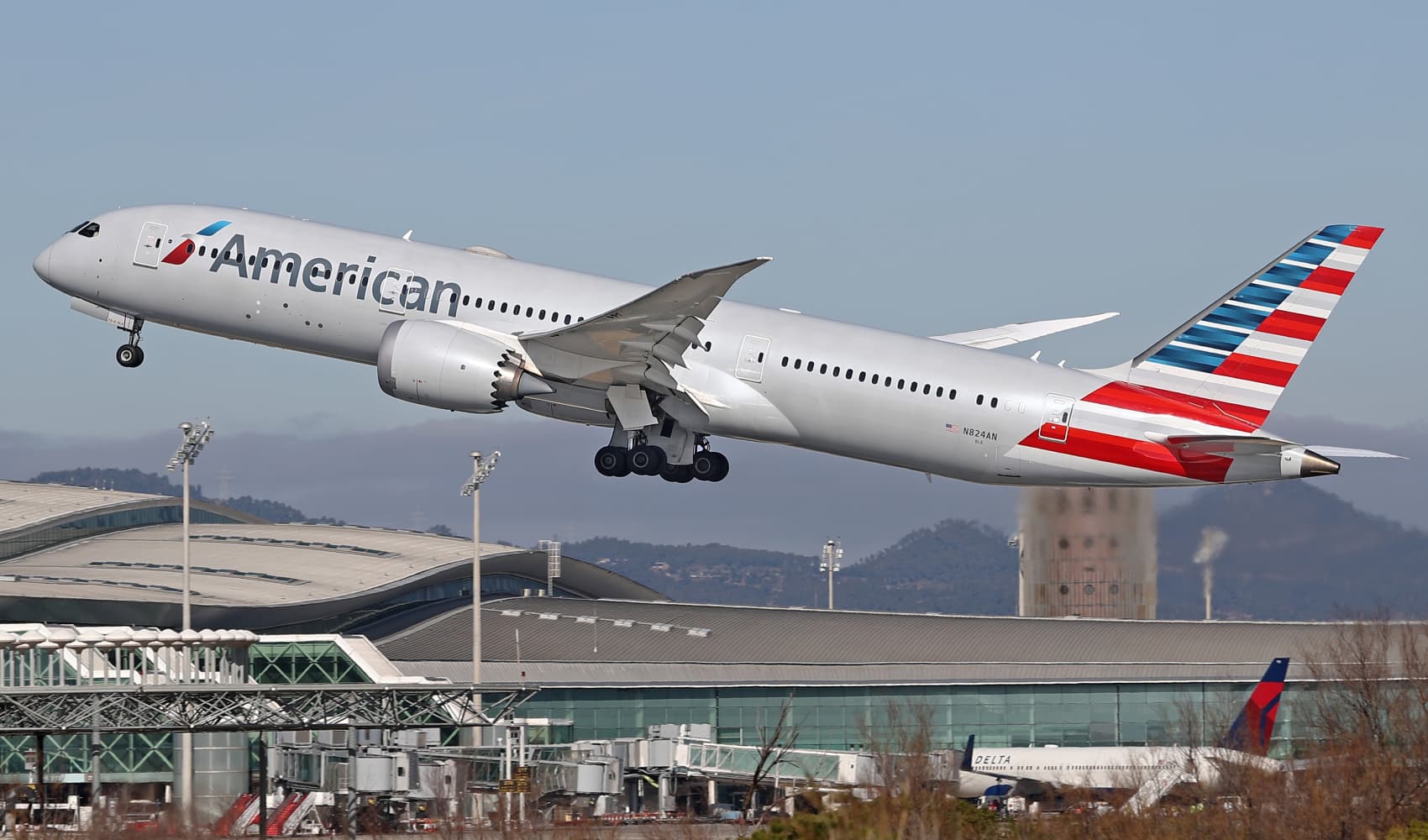
- The sweeping entry restrictions will apply to venues including shopping centers, restaurants, gyms, recreational facilities, schools, resorts, sports activities and all retail businesses that aren't within shopping centers or malls.
- An exception will remain for entry to "essential" businesses like pharmacies and supermarkets, a subsequent tweet read.
- Children under the age of 15 and those with special exemptions from vaccination will be exempt from the new rule.

DUBAI, United Arab Emirates — Abu Dhabi will deny entry into nearly all public spaces, as well as schools, to people who are unvaccinated against the coronavirus, the emirate's government announced late Monday night.
The oil-rich United Arab Emirates announced its consideration of the plan in April, but did not impose the restrictions. Now, they are set to be enacted in its capital of 1.5 million people beginning on Aug. 20.
We're making it easier for you to find stories that matter with our new newsletter — The 4Front. Sign up here and get news that is important for you to your inbox.
"The Abu Dhabi Emergency, Crisis and Disasters Committee has approved allowing only those vaccinated to enter some public places, after vaccinating 93 per cent of target groups in the emirate and to preserve public health," a tweet from the Abu Dhabi media office read.
The entry restrictions will apply to shopping centers, restaurants, cafes, gyms, recreational facilities, sports activities and all other retail businesses that aren't within shopping centers or malls. An exception will remain for entry to "essential" businesses like pharmacies and supermarkets, a subsequent tweet read.
"The decision also applies to health clubs, resorts, museums and cultural centres, theme parks, universities and institutes, schools and nurseries," the Twitter post continued.
Money Report
Children under the age of 15 and those with special exemptions from vaccination will be exempt from the new rule.
Nearly everyone vaccinated
Abu Dhabi boasted its high vaccination rate, which its health ministry says is now at 93% of the emirate's population, as part of its justification for the move.
The UAE as a whole has one of the highest vaccination rates in the world, with more than 15 million vaccine doses administered across its majority-expatriate population of just over 10 million. Since all the vaccines available in the UAE require two doses, that is sufficient to have fully vaccinated about 77% of the Gulf country's population, according to a calculation by Reuters.
The announcement from Abu Dhabi still faced some criticism, at least online.
"They never clarify how will it effect visitors? They cannot register their vaccines on al hosn if taken in another country. Does it mean that visitors can not go anywhere in Abu Dhabi? Good luck tourism !!!" wrote one Twitter user in response to the news, referring to the UAE's Al Hosn tracking and vaccination registration app.
Abu Dhabi has not specified whether this will apply to tourists, and did not immediately reply to a CNBC request for comment.
The impending bans on entry for the unvaccinated so far only apply in Abu Dhabi. In Dubai, the UAE's commercial and tourism capital, some businesses like bars and restaurants require proof of full vaccination, but the restrictions aren't universal.
The desert sheikhdom has registered 631,160 infections and 1,807 deaths from the virus since the pandemic began, according to Johns Hopkins University, and current daily infections are on average around 2,100, roughly half the level of its peak in late January.
But the figures don't specify in which emirates or cities the cases or deaths are identified. And Abu Dhabi and Dubai, the UAE's most populous emirates, have approached their vaccination campaigns somewhat differently.
Abu Dhabi from late 2020 onward offered only the Chinese-made Sinopharm vaccine, in line with its plan to manufacture the vaccine locally thanks to a joint venture between Sinopharm and Abu Dhabi-based technology company Group 42, commonly known as G42.
Dubai, meanwhile, offered Sinopharm, the American and German developed Pfizer-BioNTech shot, the U.K.'s Oxford-AstraZeneca vaccine and Russia's Sputnik V. Most of the vaccines that have been administered in the country are China's Sinopharm, which was offered to all groups of people far earlier than the other shots. All vaccinations in the country are free.
Uncertain vaccine efficacy
But some countries and residents aren't convinced by the UAE's efforts. It remains on the "red list" for travel — meaning a strict quarantine required upon arrival or entry barred altogether — for several countries including the United Kingdom, a major trading and tourism partner.
And Abu Dhabi is now offering Pfizer shots as well as a third, or booster, shot of Sinopharm to residents after news emerged that an undisclosed number of people did not produce sufficient antibodies against Covid-19 after receiving both Sinopharm doses. Neighboring Gulf country Bahrain is offering the same. Several recipients of the Chinese vaccine have reported contracting Covid, despite being fully vaccinated.
The UAE government announced in December that an "interim analysis" conducted by the China National Biotec Group (a subsidiary of Sinopharm) of the vaccine's phase 3 trials in Abu Dhabi found it to be 86% effective. But the announcement was thin on details and did not disclose how that 86% figure was calculated.
In the same month, China announced the vaccine as 79.34% effective based on what it said was "interim trial data" without releasing phase 3 results, conflicting with the UAE's figures.
Sinopharm did not reply to multiple CNBC requests for comment.
The World Health Organization in May approved Sinopharm for emergency use, making it the first non-Western vaccine to get the organization's green light. It is one of China's two main shots that have been administered to millions of people in China and elsewhere, particularly in the developing world.






